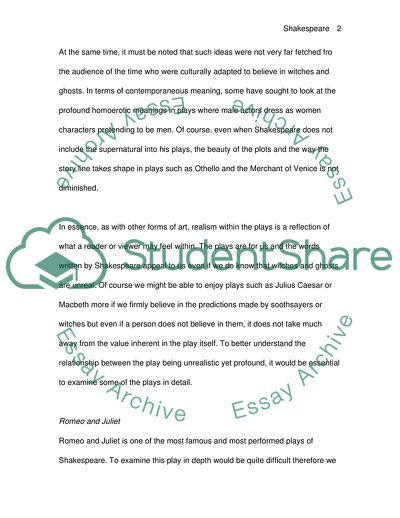Cite this document
(Shakespeare: Unrealistic is Profound Essay Example | Topics and Well Written Essays - 3750 words, n.d.)
Shakespeare: Unrealistic is Profound Essay Example | Topics and Well Written Essays - 3750 words. https://studentshare.org/literature/1707783-shakespeares-theatre-becomes-more-profound-as-it-gets-less-realistic-discuss-in-relation-to-at-least-three-of-the-following-plays
Shakespeare: Unrealistic is Profound Essay Example | Topics and Well Written Essays - 3750 words. https://studentshare.org/literature/1707783-shakespeares-theatre-becomes-more-profound-as-it-gets-less-realistic-discuss-in-relation-to-at-least-three-of-the-following-plays
(Shakespeare: Unrealistic Is Profound Essay Example | Topics and Well Written Essays - 3750 Words)
Shakespeare: Unrealistic Is Profound Essay Example | Topics and Well Written Essays - 3750 Words. https://studentshare.org/literature/1707783-shakespeares-theatre-becomes-more-profound-as-it-gets-less-realistic-discuss-in-relation-to-at-least-three-of-the-following-plays.
Shakespeare: Unrealistic Is Profound Essay Example | Topics and Well Written Essays - 3750 Words. https://studentshare.org/literature/1707783-shakespeares-theatre-becomes-more-profound-as-it-gets-less-realistic-discuss-in-relation-to-at-least-three-of-the-following-plays.
“Shakespeare: Unrealistic Is Profound Essay Example | Topics and Well Written Essays - 3750 Words”. https://studentshare.org/literature/1707783-shakespeares-theatre-becomes-more-profound-as-it-gets-less-realistic-discuss-in-relation-to-at-least-three-of-the-following-plays.


